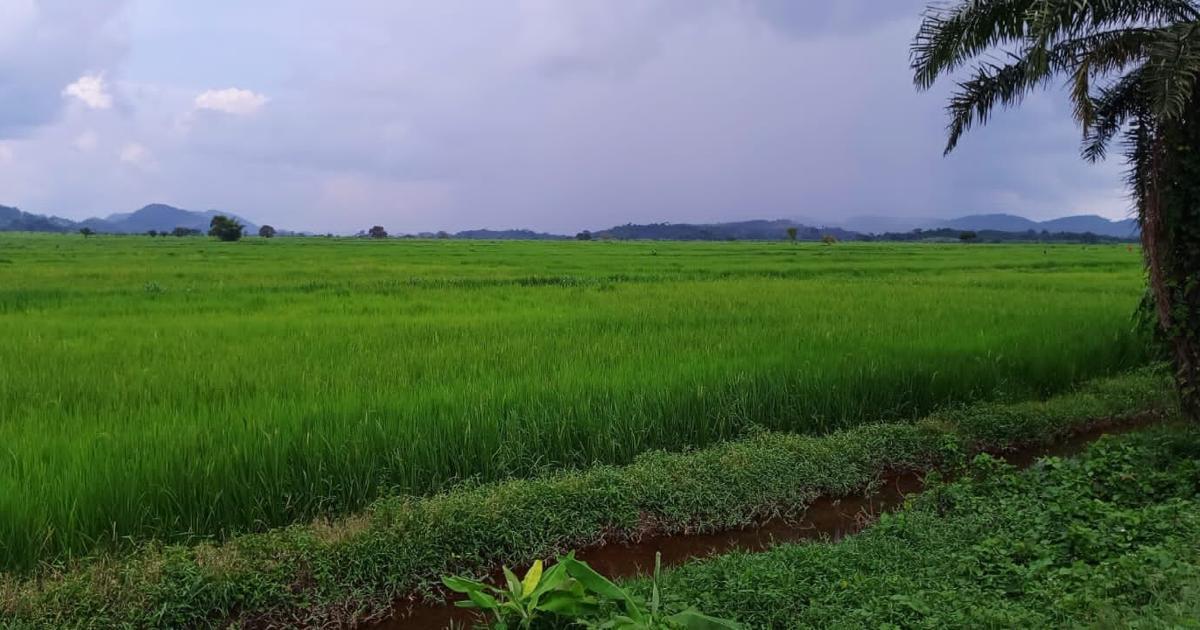Africa-Press – Liberia. In an effort to boost domestic rice production, the Ministry of Agriculture (MoA) is intensifying support for farming cooperatives in the country.
Through targeted initiatives and partnerships, the MoA is equipping cooperatives with vital resources, hoping to reduce Liberia’s heavy reliance on rice imports and bolster food security.
The Fuamah District Multi-Purpose Cooperative in Bong Mines, Lower Bong County is one of many farmer groups benefiting from these initiatives.
Agriculture Minister Dr. J. Alexander Nuetah recently visited the cooperative to witness firsthand strides being made.
These efforts are part of the National Agriculture Development Plan (NADP), which aims to enhance food self-sufficiency by developing 50,000 hectares of lowland within five years.
Through World Bank-backed projects like the Rural Economic Transformation Project (RETRAP) and the Smallholder Agriculture Transformation Agribusiness Revitalization Project (STAR-P), the Fuamah Cooperative has seen transformative growth. With equipment and inputs from the ministry, they have expanded their rice fields from 500 to 900 hectares, anticipating a bumper harvest this season.
Minister Nuetah chatting with some members of the Fuamah Cooperative during his visit
Minister Nuetah expressed optimism about Liberia’s potential to meet local rice demands: “With the targeted areas under cultivation within the country, we are looking forward to improving domestic rice production by next year. We are going to introduce five different brands of rice for the market for Liberians to be able to buy,” he said.
The MoA is coordinating with cooperatives in Bong, Nimba, and Lofa counties to scale up production, aligning with a national push to reduce rice imports.
“The President has given us the mandate to support the farmers so that we can feed ourselves,” Nuetah added, emphasizing the importance of self-sufficiency. “We have come to see the progress made by the farmers. We provided them with machines and other inputs so that they can grow more rice to feed themselves and the nation.”
As part of a broader strategy, the MoA also plans to engage a private investor who will work alongside farmers in large-scale rice production. This approach is expected to transform local farmers into out growers while ensuring market access for their rice.
“We are seeking an investor that will come to eventually take over the entire land and make the farmers out growers,” Dr. Nuetah explained.
“But in this venture, we are still going to support the farmers with inputs and ensure market access for the rice they produce. This is intended to create more employment opportunities for many of the residents,” he added.
Minister Nuetah acknowledged that Liberia’s journey to rice self-sufficiency requires both smallholder and large-scale contributions.
“The smallholder farmers will remain on the farmland, but the investor will come and work with them as out growers to create income opportunities. By developing infrastructure for irrigation, the investor could help enable double cropping, further increasing yields,” he said.
However, despite these gains, marketing remains a serious challenge for rice producers. Currently, Liberia imports 70% of its rice, a dependency that strains the country’s economy through import subsidies.
Minister Nuetah assured farmers that his ministry is working to secure markets for locally grown rice. “Though the market remains a serious challenge for the farmers, the Ministry is going to ensure a market for the rice produced by the farmers,” he said.
With continued support, the government hopes to turn Liberia’s rice sector into a self-sustaining industry that not only feeds the nation but generates income and employment for its people. “We intend to support new farmers next farming season so that many people can find jobs,” Minister Nuetah concluded, envisioning a future where Liberia can break free from its dependency on imported rice.
For More News And Analysis About Liberia Follow Africa-Press






